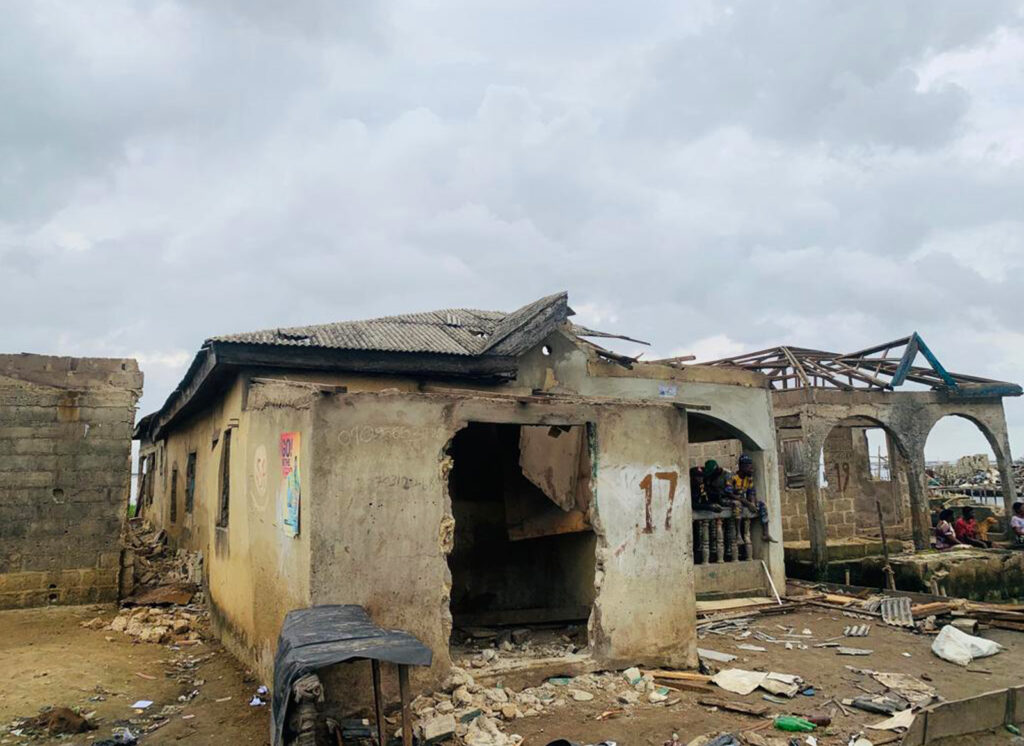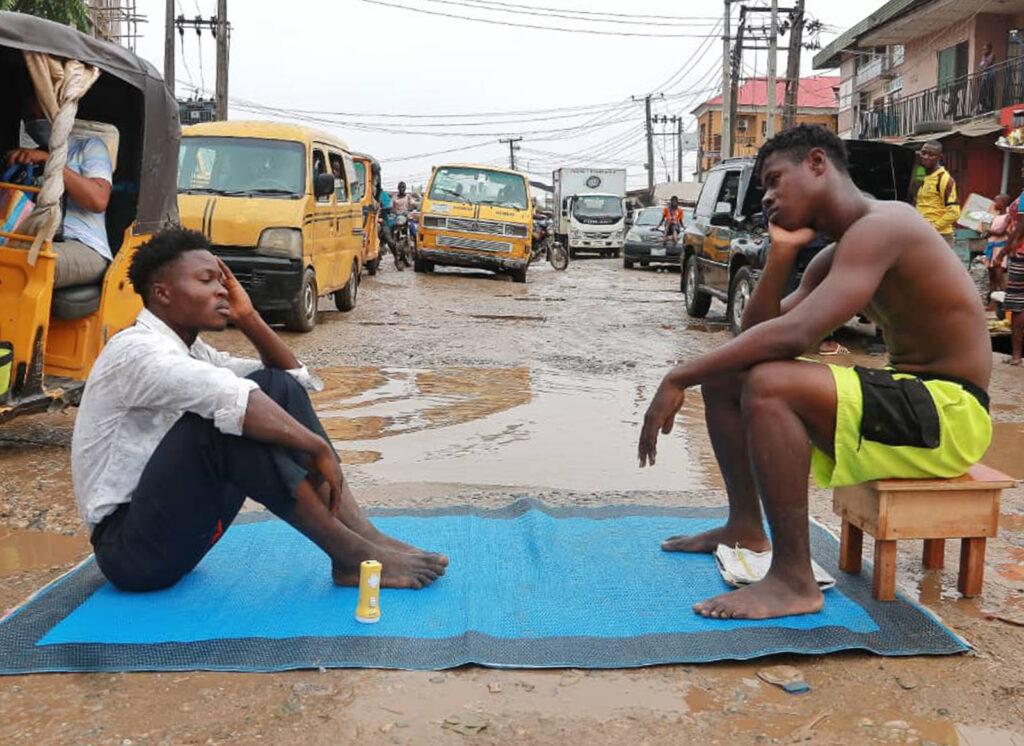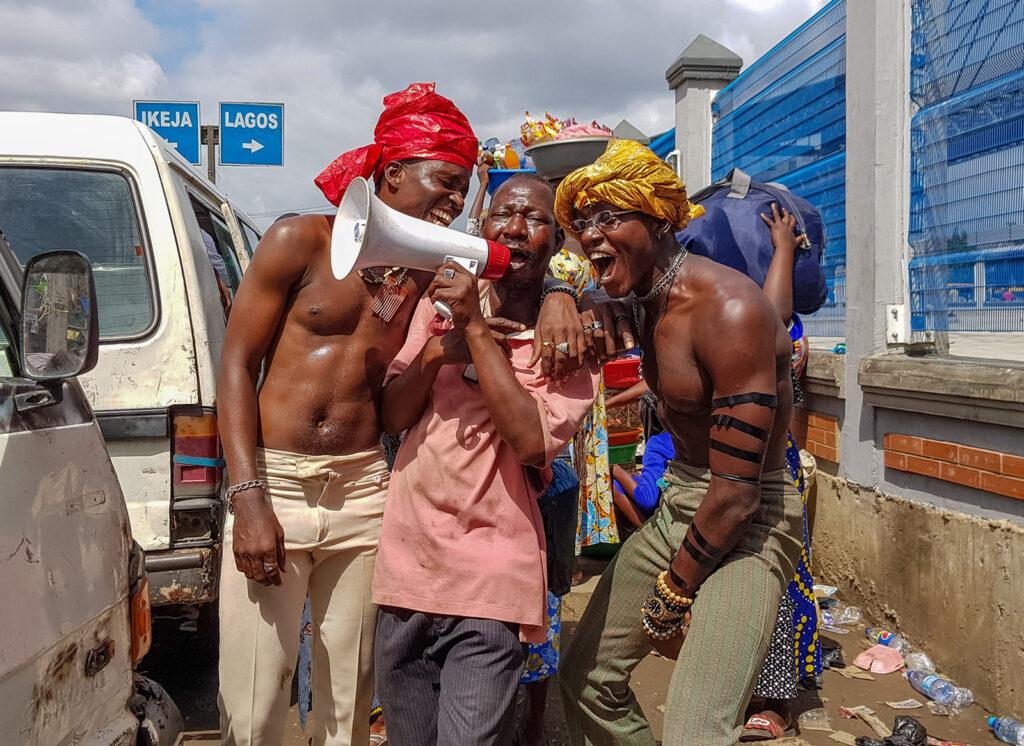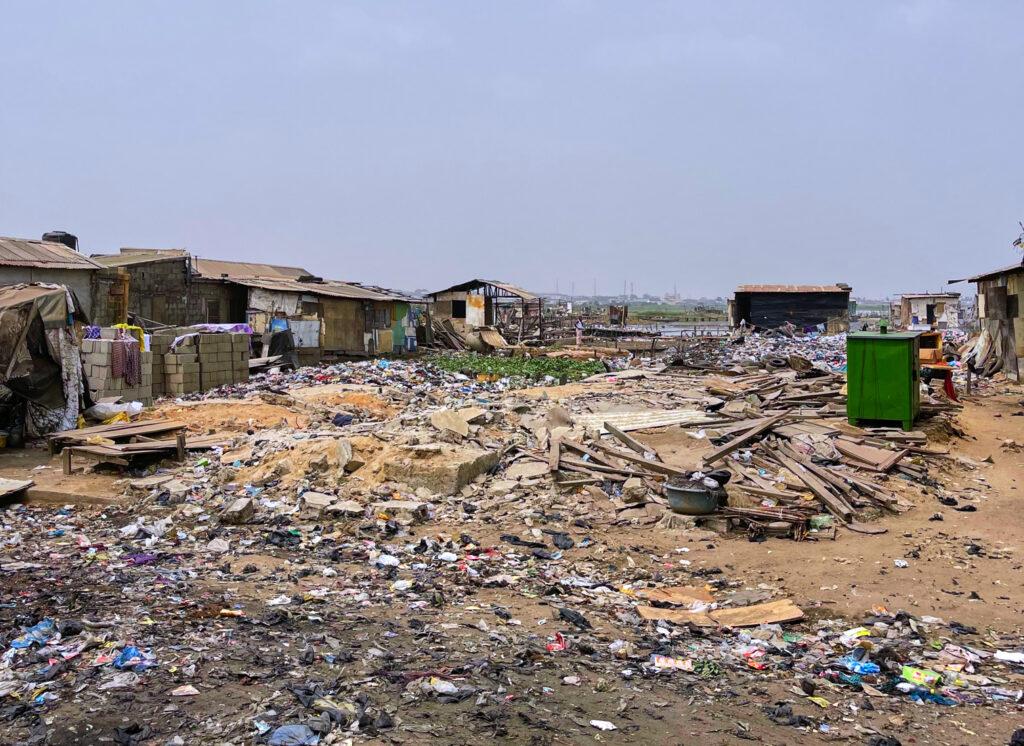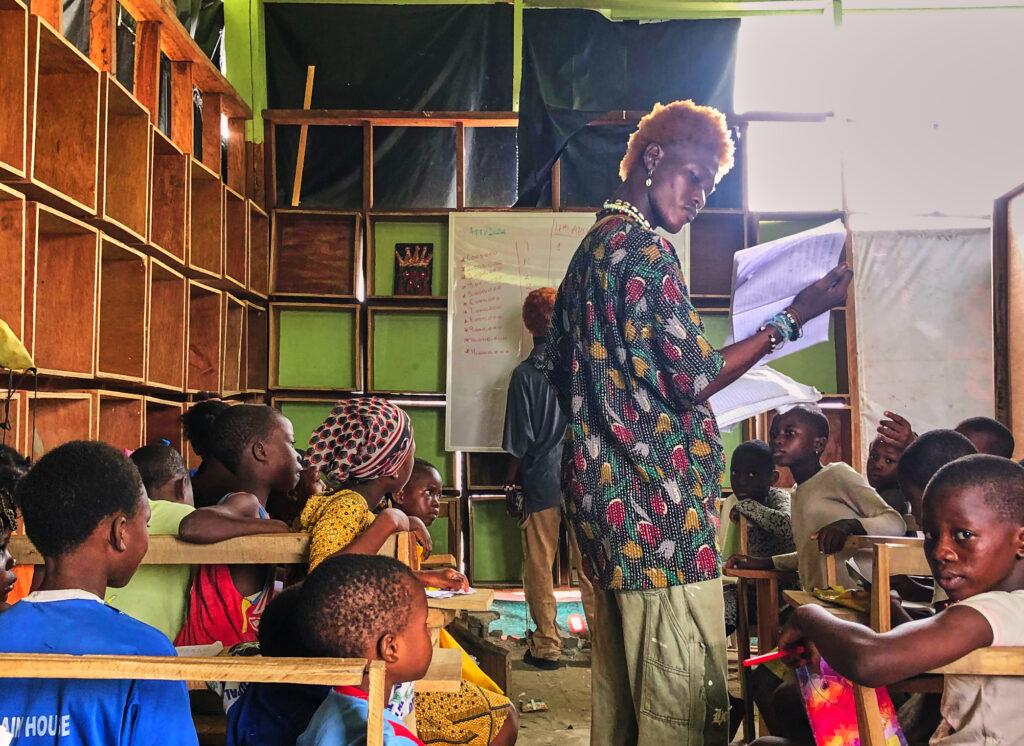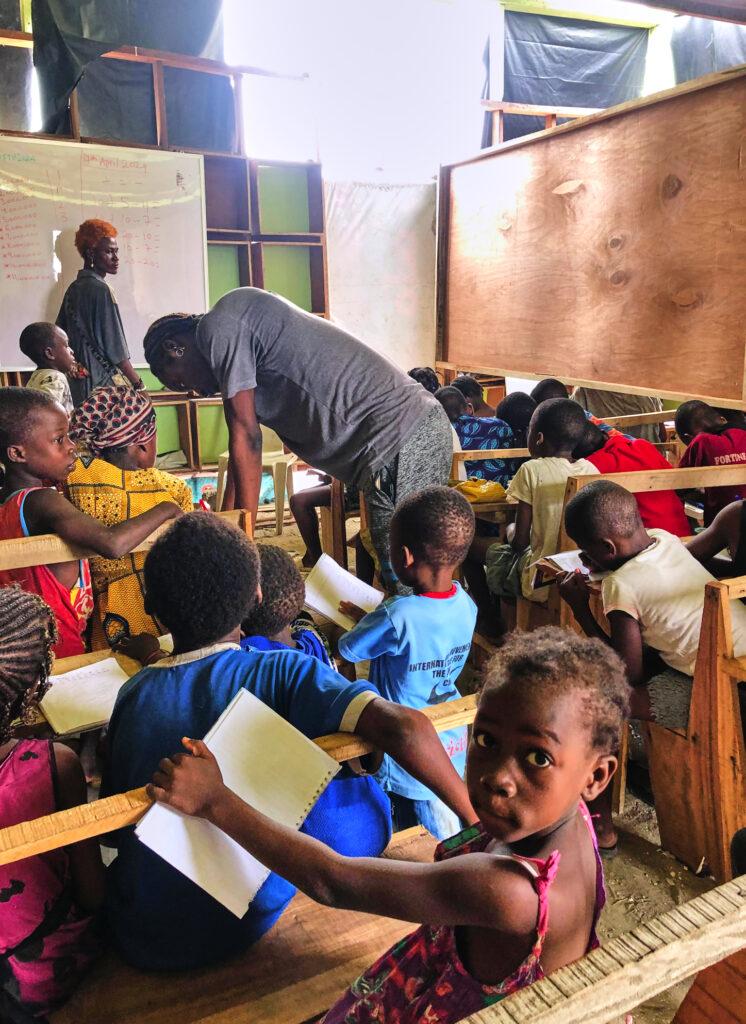Following the unprecedented demolition of homes and schools in his community, Lagos-based dancer, choreographer and community organiser Obiajulu Ozegbe (he/him) shares how his dance company, Ennovate Dance House, came together to build a free school for Oworonshoki’s children.

Liberation through purpose
How does one find fulfilment when it seems the odds are stacked against you?
How do our actions today influence tomorrow?
Systems and empires are crumbling in front of our eyes, playing out in the palms of our hands on social media.
With so much accelerated change, acting and moving with intention is key as we witness the end of one cycle and another forged in the process.
This goes for everything from how we see our roles in community to how we develop a sustainable future for the next generation.
Working with purpose creates a focus and sense of direction that can make incredible impact.
In July 2023, the community of Oworonshoki in Lagos, Nigeria was rocked by the forced demolition of hundreds of homes, businesses and schools by the local state government.
These devastating actions displaced hundreds of families and left 1,000 children without access to an education.
Through his dance company, Ennovate Dance House, Obiajulu Ozegbe was determined to find a way to support the community’s families by building a free school for children aged 4 to 12 years old.
We met Obiajulu and the dancers from Ennovated at the end of 2022 via our project with the Prince Claus Fund.
The group’s passion and dedication to their community really inspired us and we’re delighted to say that we’re partnering with them on the school project through The Study Group Foundation.
Here’s the start of the story about how a group of creatives came together to support the youth of Nigeria’s most populous city, Lagos.
Hi Obiajulu, you’ve been developing community initiatives in Oworonshoki, Lagos, through Ennovate Dance House since 2018. What motivates your community work and activism?
For me, it stems from a need to see one’s community grow.
I’ve been dancing for a while and when I decided to come back to my community in 2018 a lot was happening at the time.
We wanted to use dance as a way to highlight the challenges that we face in our community and in Nigeria as a whole.
The motivation for me was to wake up in the morning, step outside the door and see that there’s no electricity here, or there are potholes there or there’s been an armed robbery.
As a dancer I wanted to see how I could contribute to develop the community.
Before I used to dance for fun, for Instagram, music video, theatre productions… but that period was when I wanted to see through Ennovated how we could use dance to make change as opposed to just entertainment.
The motivation is to create a better world, starting with our community.
What changes have you seen take place in the community since you started this work?
One immediate example I can give is a DJ from Oworonshoki who attempted to break the world record for the longest marathon DJ set. He played for eleven days straight – about 276 hours non-stop.
It’s funny because I went to visit him on a couple of days to support. I wasn’t even the one attempting the record but people came up to say ‘thank you, this is clearly an offshoot and outcome of the work you’ve been doing in the community over the years’.
I appreciated the acknowledgement but I was just there to give the DJ his flowers.
I use that example because the period from 2018 to 2021 was very intense for Oworo.
As dancers, we were the only ones coming out to say that what was happening, especially in terms of insecurity, needed to stop.
It was really dangerous at the time.
With other performances and protests we’ve been able to improve local infrastructure, drawing attention, for example, to roads that needed to be fixed.
We also started to find a way to bring the local women together. They decided that they wanted to get more fit; they now work out every Saturday at our aerobics class.
When it comes to local external initiatives coming in to support the community, they tend to come to the women first.
In turn they come to us because they feel a sense of pride getting into dance.
Our most significant intervention is Slum Party which has now evolved into its own dance festival.




What challenges is Oworo facing right now?
Before I get into the challenges, it’s important to give context about what makes Oworo so interesting.
Lagos State is divided into two: the Mainland and the Island. Usually when you arrive in Lagos, you arrive in Ikeja on the Mainland.
The Third Mainland Bridge is the main route most people take – it demarcates the Island and the Mainland.
Oworonshoki is the first community you come across along the route, it’s the centre point between the two so it’s an important community geographically speaking.
However, for reasons I have yet to understand, the local state government has forgotten about Oworo.
When it comes down to issues like electricity, for example, though there are shortages and cuts across the country, there are communities surrounding Oworo that have access to power for six or eight hours a day.
Electricity is now privatised. When we met with the company, they said that Oworo had been entirely without power the past three days because it wasn’t a priority area.
This made the community furious – how can they say that we’re not a priority?
We see changes happening faster in other areas. There has been communication with government groups – mainly a lot of meetings but then no action happens.
When it comes to city planning, two years ago the local government came and said that they wanted to demolish the slum part of the community called Mosafejo to replan the urban architecture of the area.
It’s the same area where we hold Slum Party.
Last July, they came to bulldoze everything.
The government didn’t provide any compensation or alternative accommodation for residents – including families – or give a date when they’d start demolition.
When the bulldozers came it was a total surprise.
We had an idea that it would take place soon but nothing official was communicated.
One Saturday, I was on the Island when I got a call that they had started to destroy homes and businesses in Mosafejo.
I rushed straight there.
When I arrived, I saw bulldozers and government workers throwing oil and fire onto people’s homes while they were still packing and trying to leave.
It was a horrible sight, people were crying, scared, angry.


In the end, they stopped the demolition.
The community put a lot of pressure on the government for two or three days, reaching out to media sources, protesting outside the State government offices.
They were surprised by the amount of pressure just a few of us were able to make to defend our community.
The demolition had a devastating impact with some families having to move away from Lagos, back to their home villages in the south of the country.
1,000 children in the neighbourhood are currently not in school – why has their access to education been affected?
Some of the local schools were destroyed and families couldn’t afford the higher fees to send their children to other schools nearby.
We knew we wanted to do something to help.
In January, at the end of the Lagos Biennial, artist Anna Ehrenstein donated the pavilion of her installation space for the Albanian Conference to be used as a dance centre.
When I saw the size of the structure, we decided to also use it as a free school on weekdays for local kids aged 4 to 12.
It was a big task because it had to be dismantled and transported 20 kilometres from the Island before putting the structure back together again with help from carpenters and builders in the community.
It took three trips just to bring everything over.
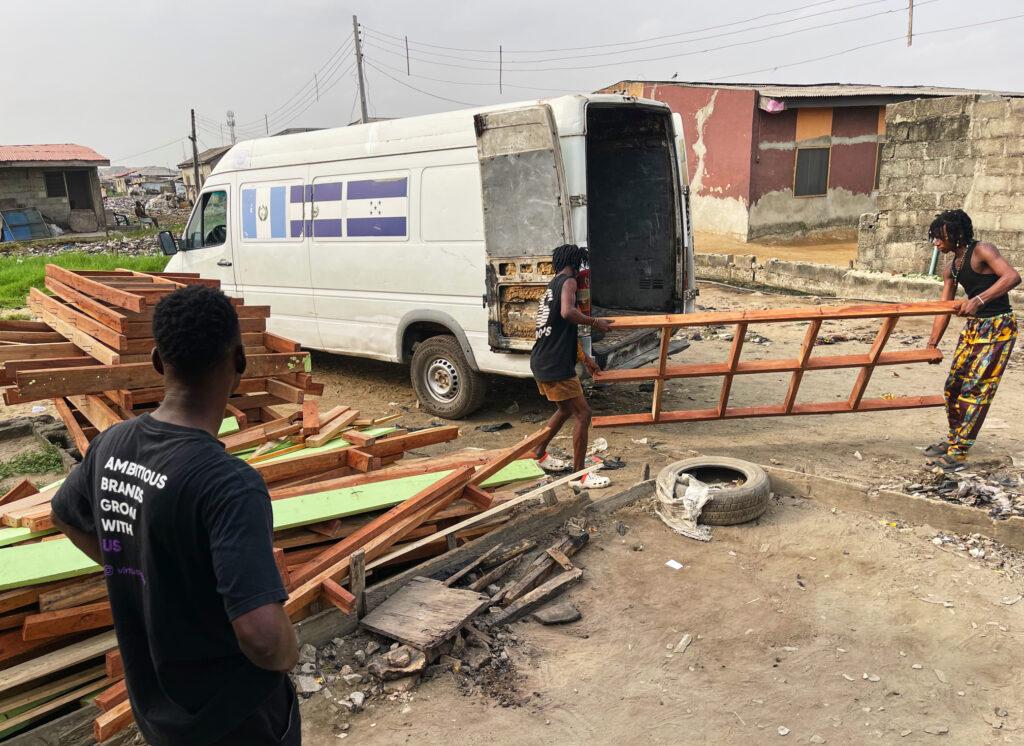
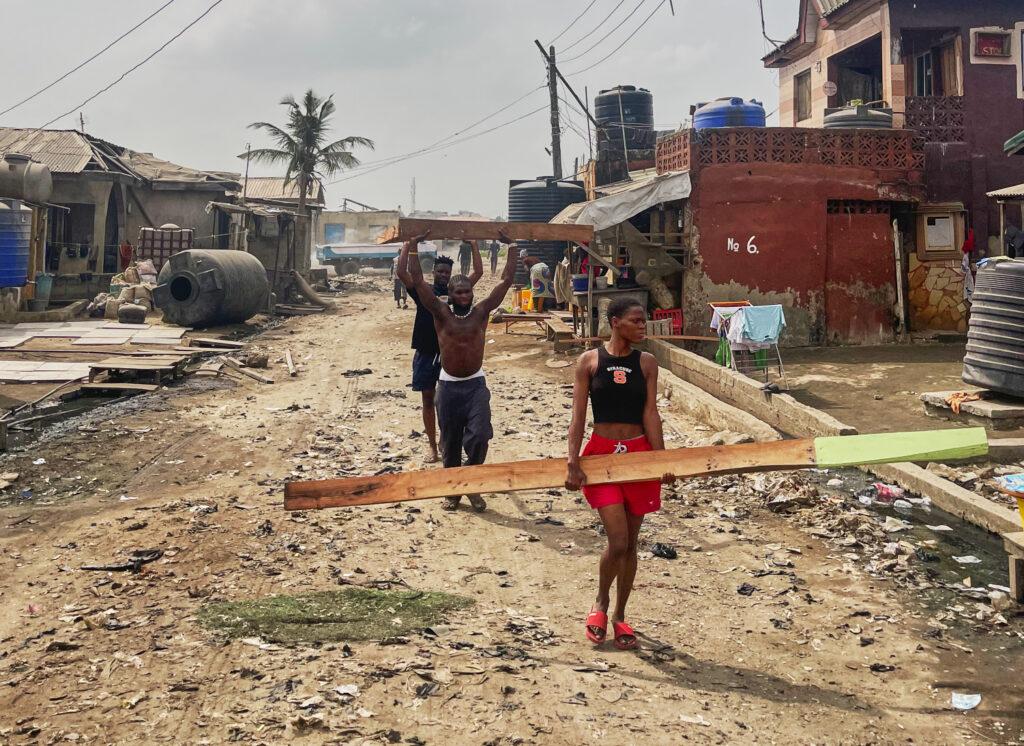
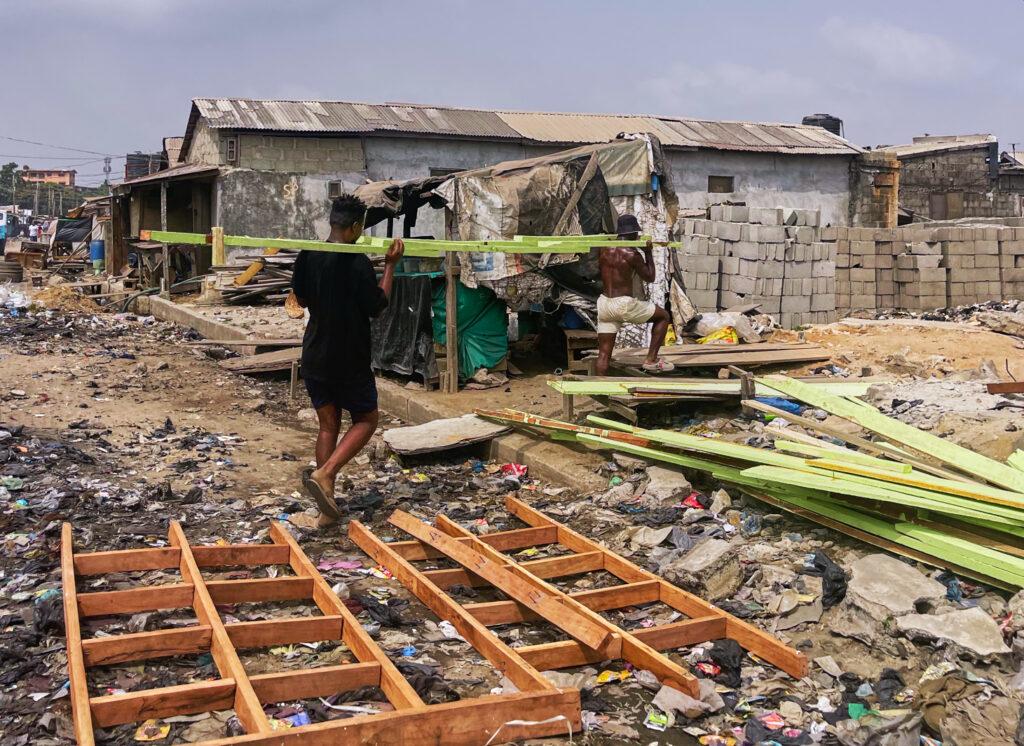
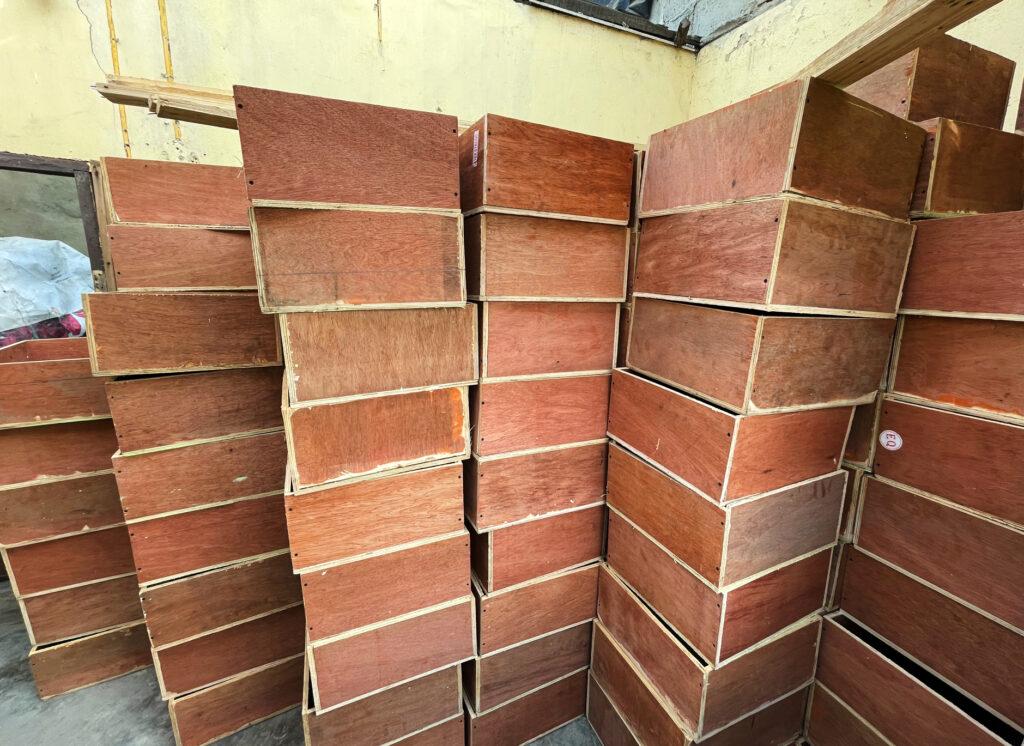
Since building the space back up, we’ve added a permanent floor. We’re working on getting a generator to have a regular power supply, more furniture like chairs for the children as well as school supplies.
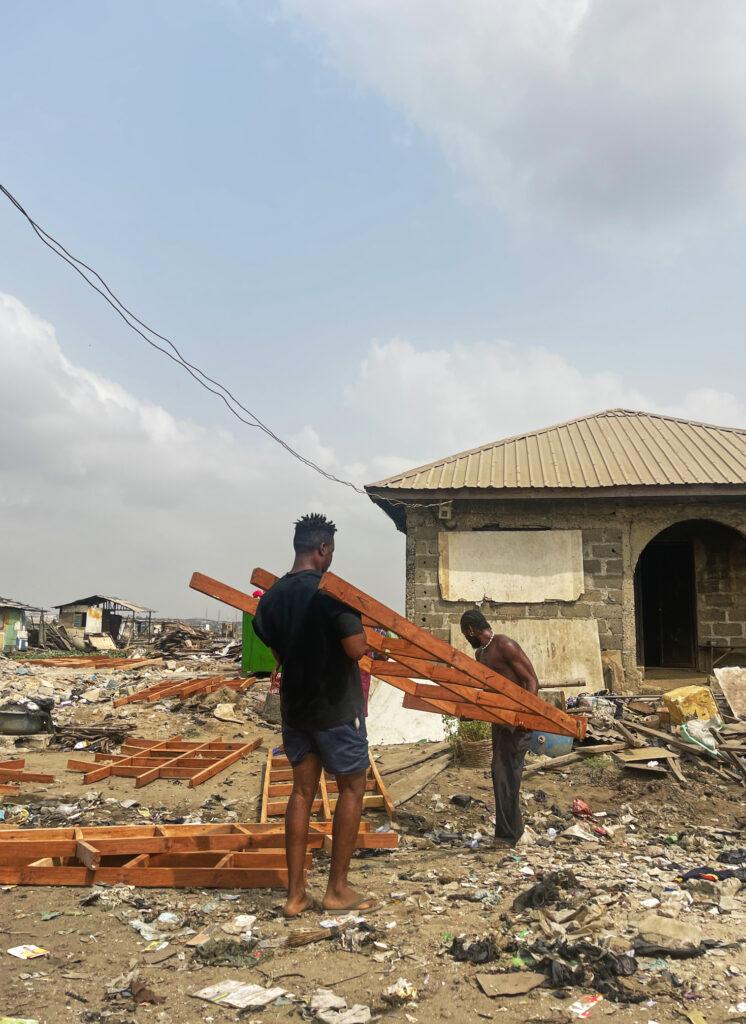
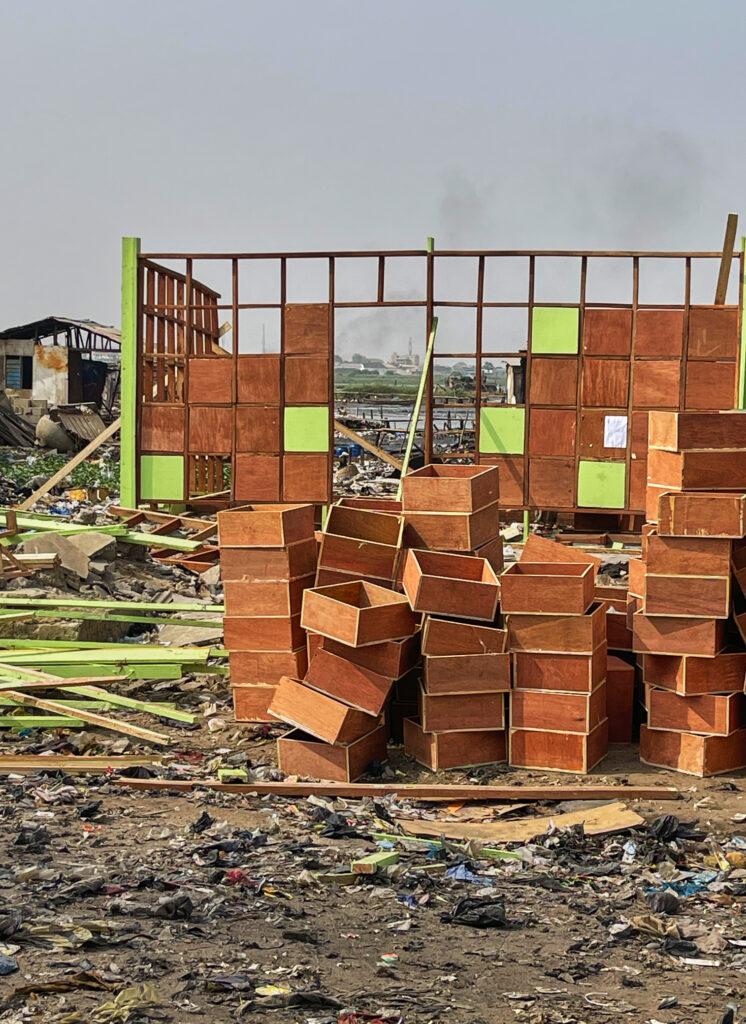
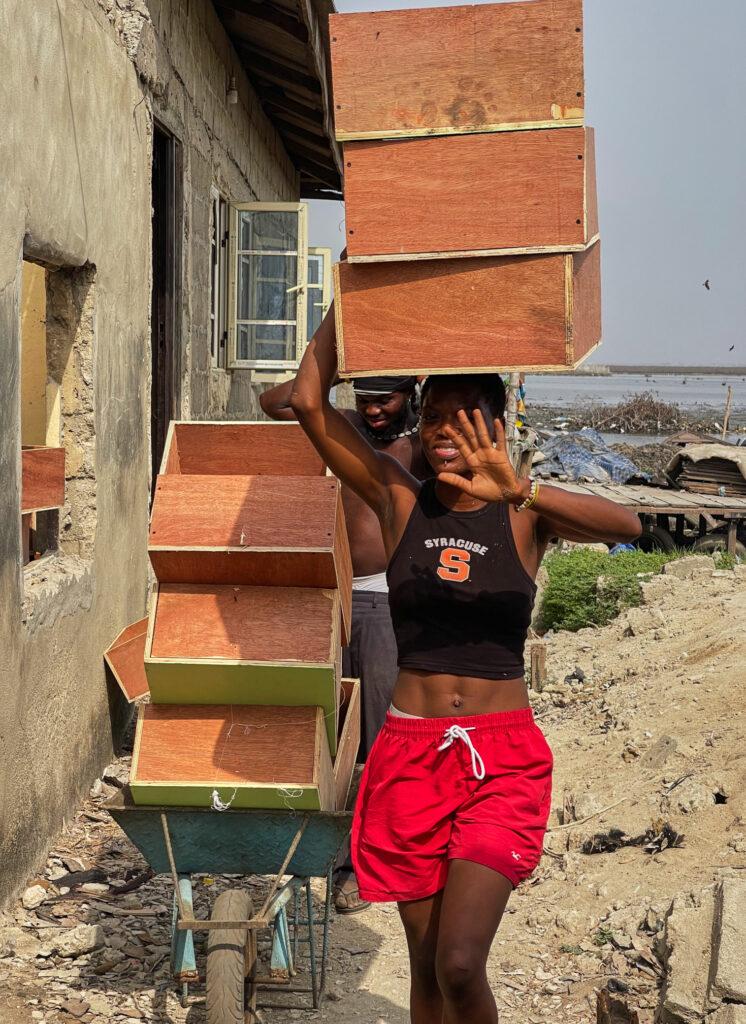
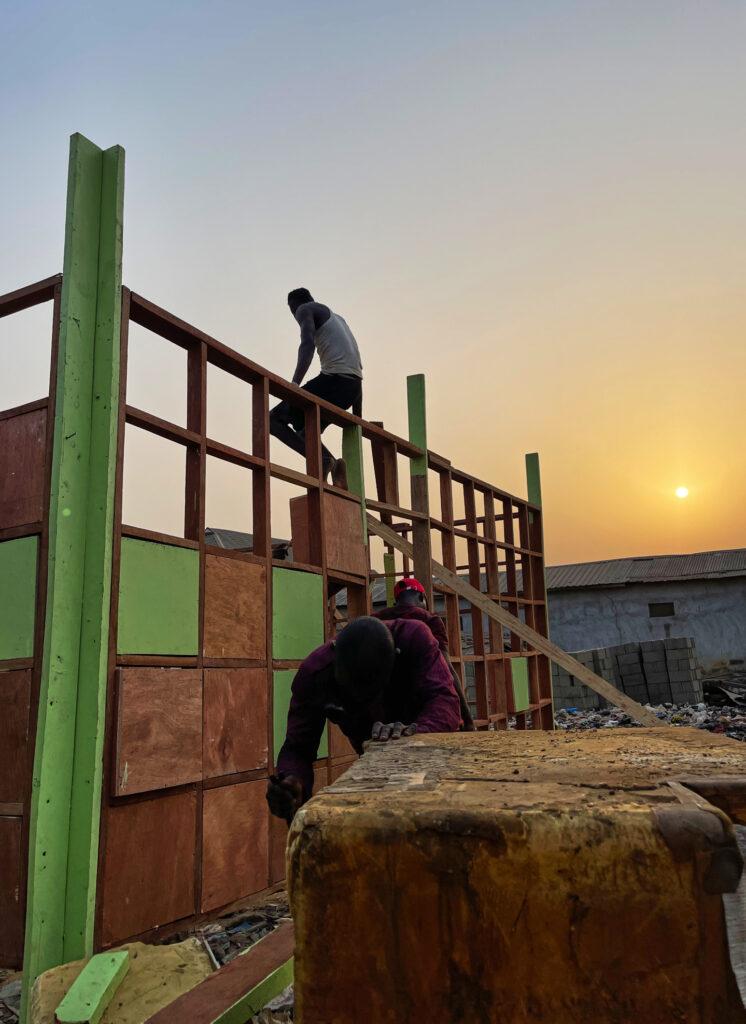
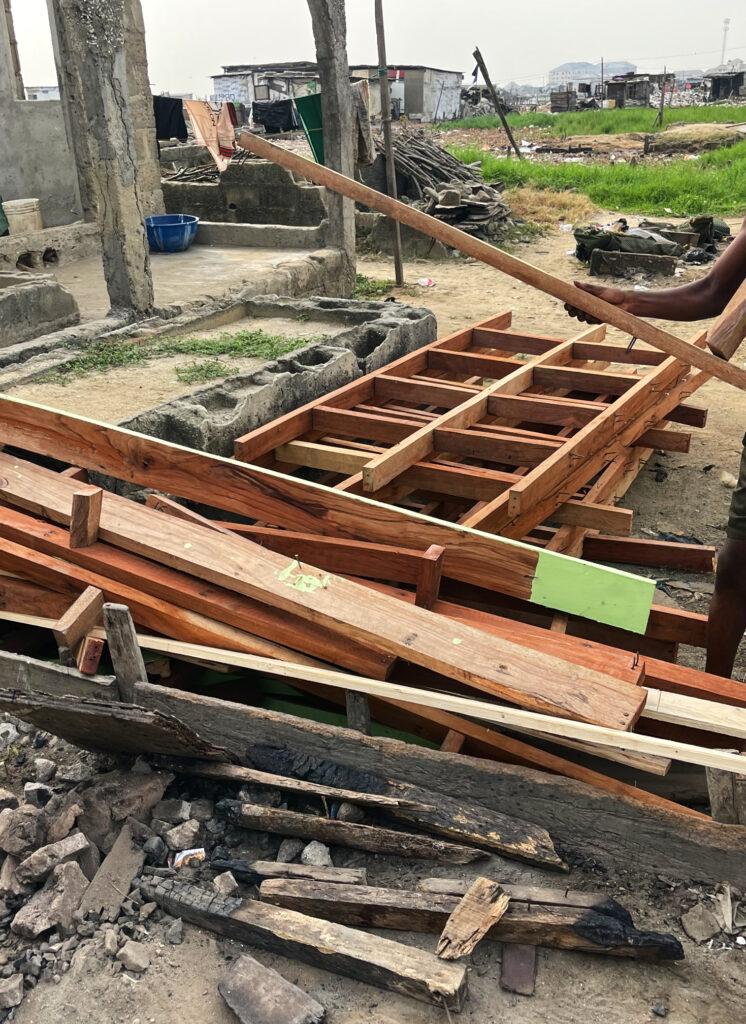
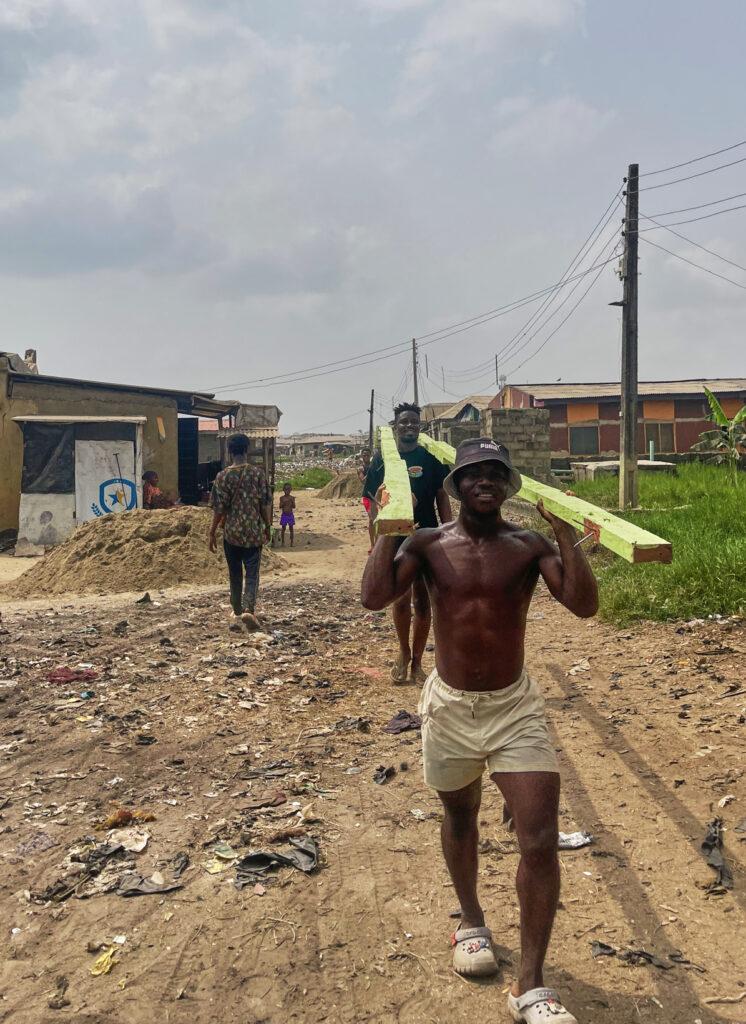
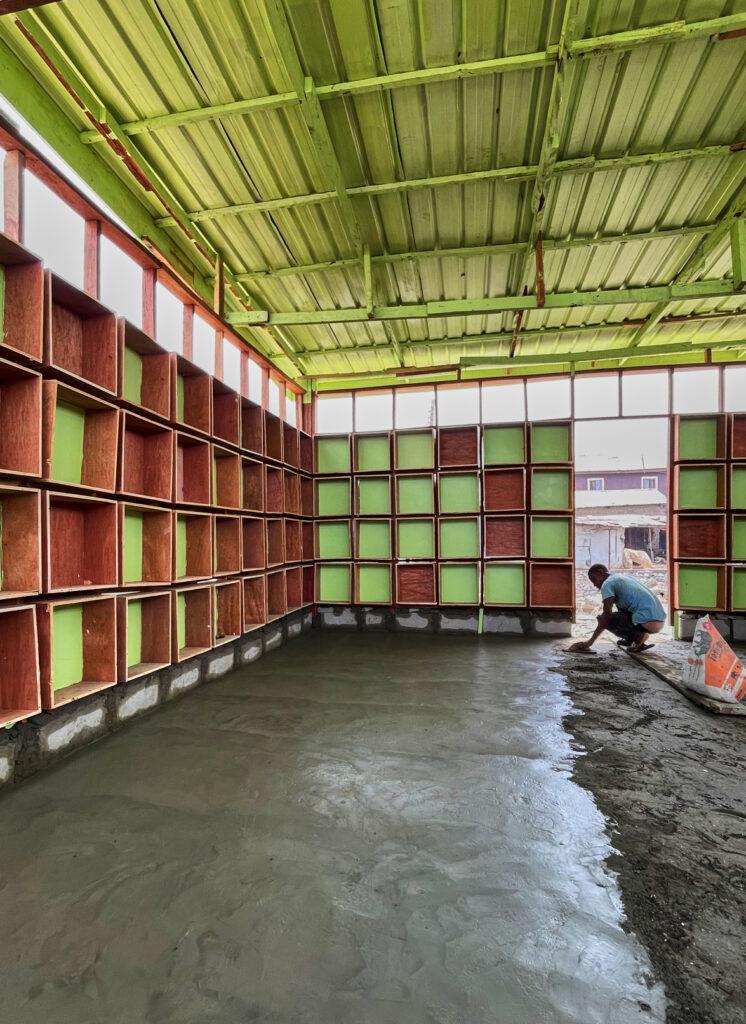

How has the community got behind this initiative?
Everything about the school has come from the community, we haven’t had to pay for anything thanks to their support.
Even the land that the school has been built on.
I’d planned to find a way for us to rent the land and was viewing locations – buying it outright would be around 2 million naira (around €1600).
One of the local landlords asked me what I needed the land for.
When I explained that we were trying to set up a free school, he gave us the space for free. It’s land where a building was demolished by the government in July.
Before we even finished construction, parents were bringing their kids because they heard that there was a free school in the middle of the community.
Classes started this month after we put out a call for people to volunteer their time to teach a few hours a week.
Over twenty people got in touch – it’s inspiring to see so many of us come together in the spirit of community to make this a reality.
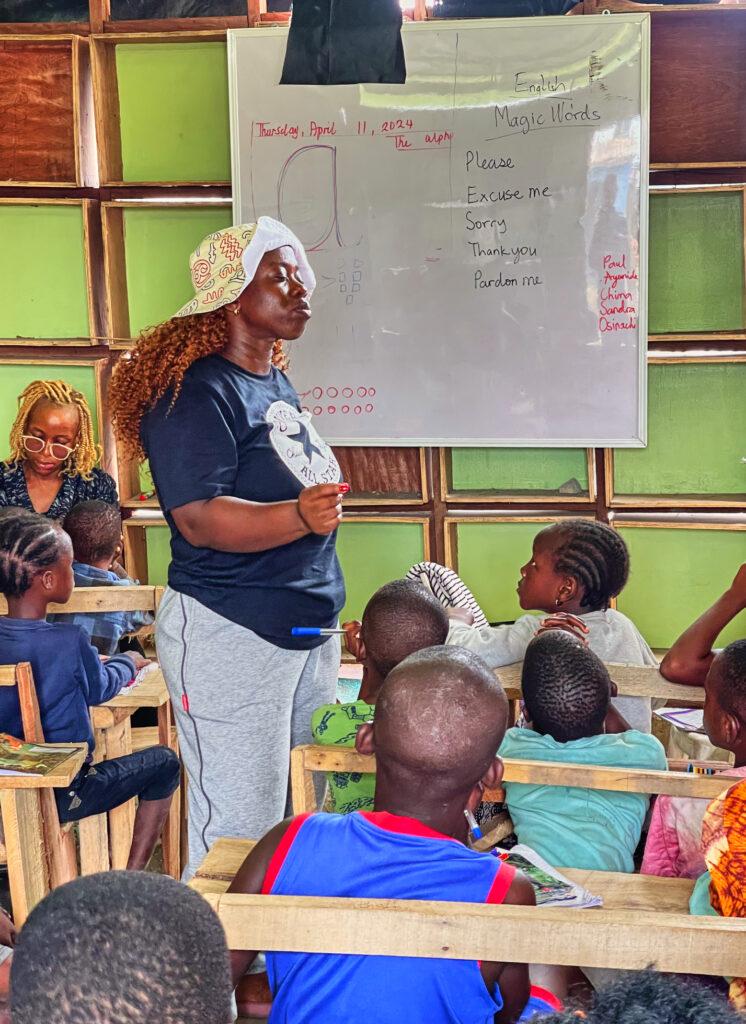
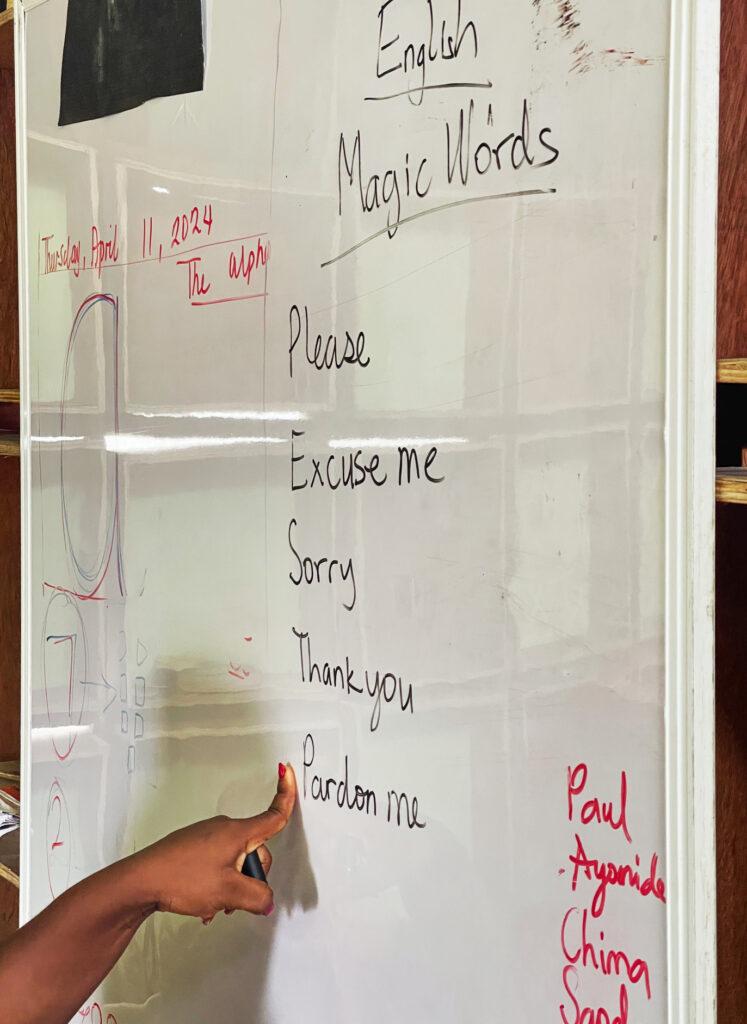
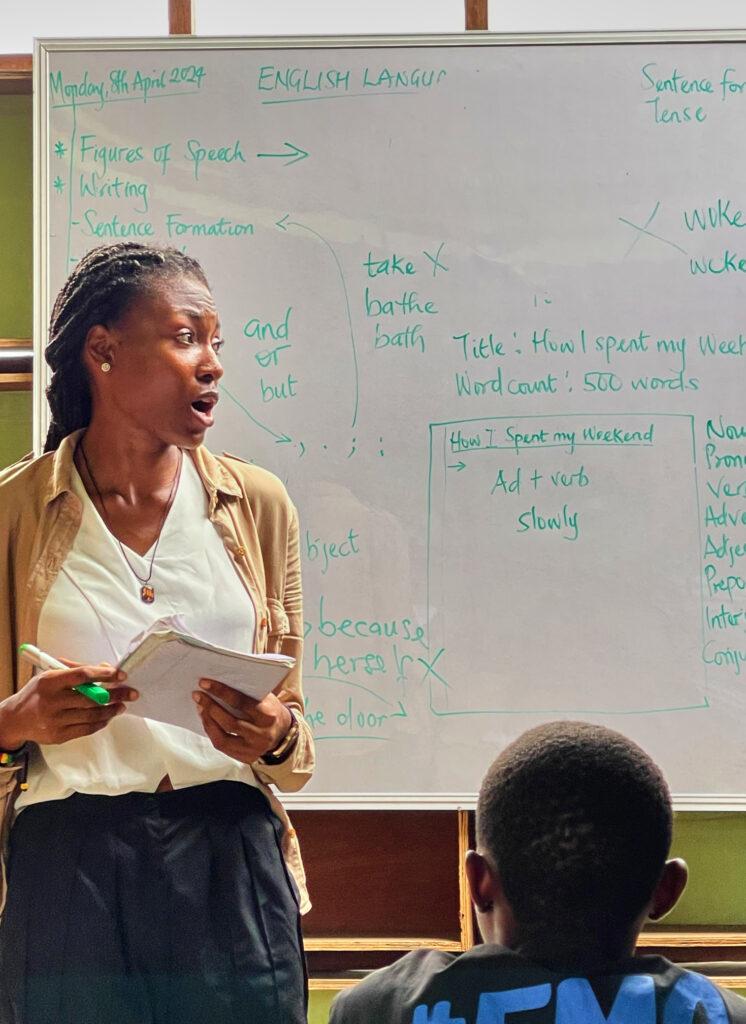
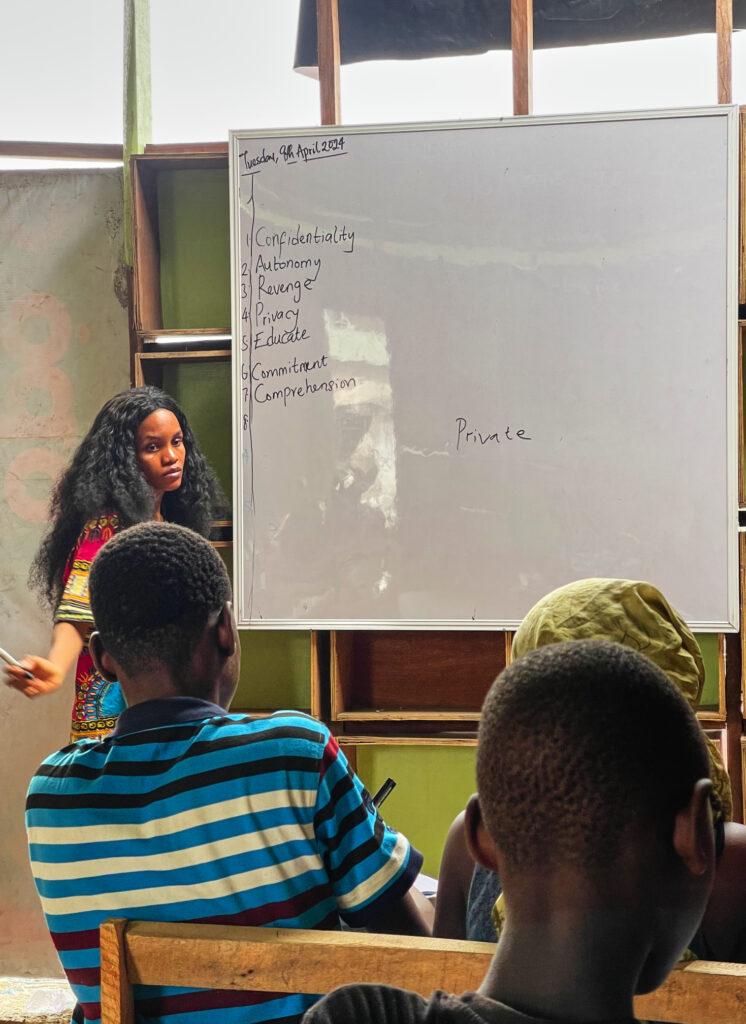
We plan to extend the school so more children can come – right now there’s space for 70-80 pupils each day. Once we extend, we’ll have space for 150 children.
I’m excited! I’ll be teaching Art and English too.
Who else is involved in developing the school? How’re things progressing?
The Ennovated team is really involved.
There’s Jumoke who looks after our administration, Chigozie our designer, as well as Samson, Tobi, John Joseph and the Slay Twins who are also dancers.
We have volunteer teachers from the community and surrounding area like Jacinta, IDara, Azeez and Jasmine who are also on the board.
There are other external supporters dedicating time to this too to help our core team.
We’re excited to see how this develops, also with international partners like The Study Group Foundation who are working with us to develop creative storytelling projects.
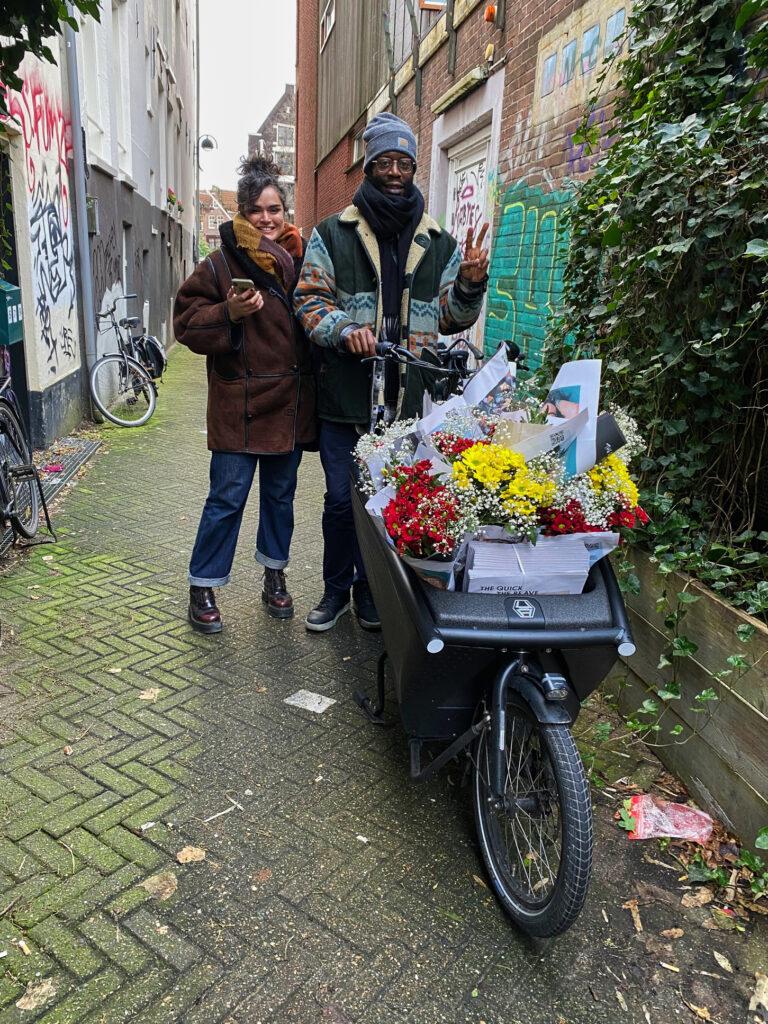
Are there plans for the school to serve the community in other ways?
The free school will teach classes in the daytime. In the late afternoon and evenings, we’ll train and hold dance classes so the space will be in use around the clock.
It’s now a permanent location where we’ll mentor local children from the community in dance.
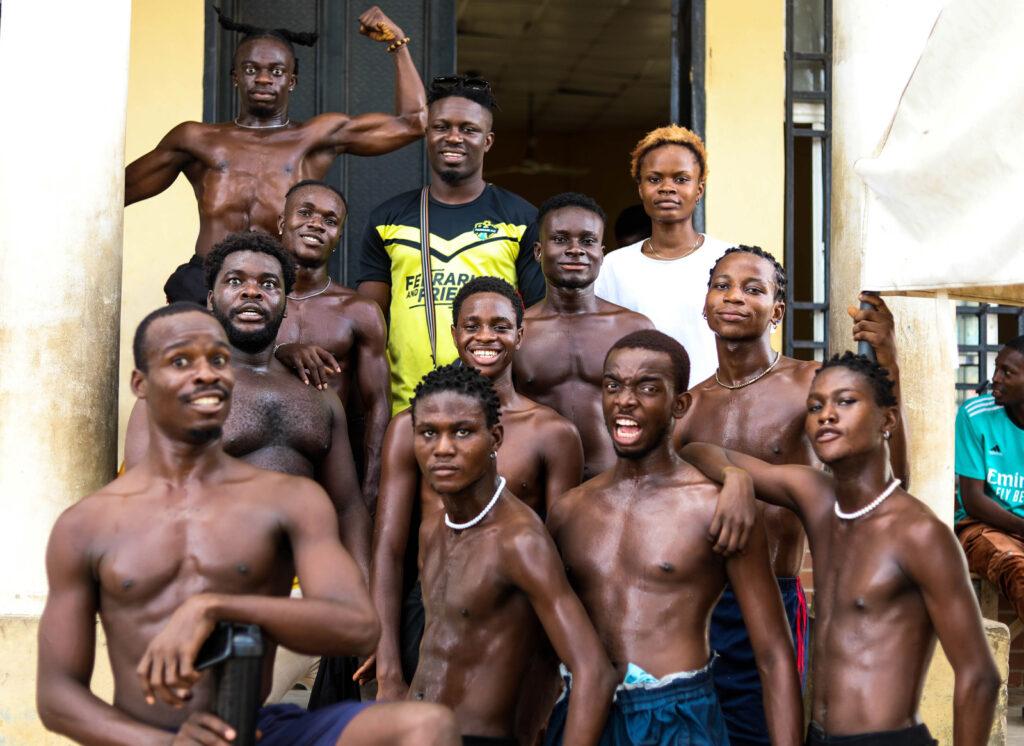
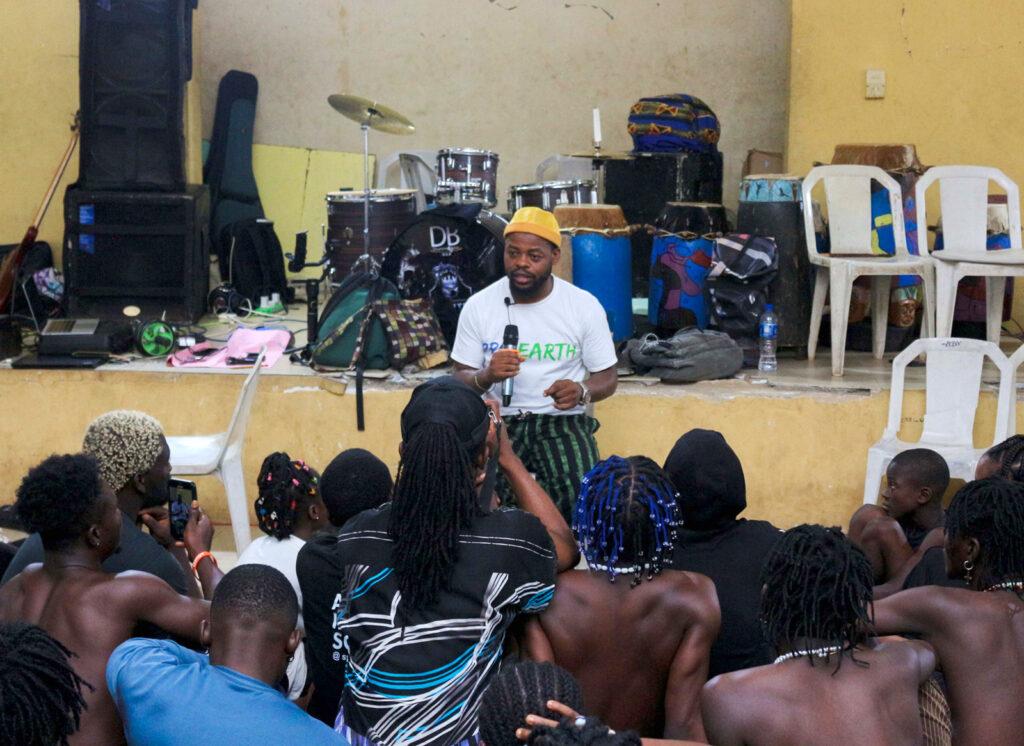
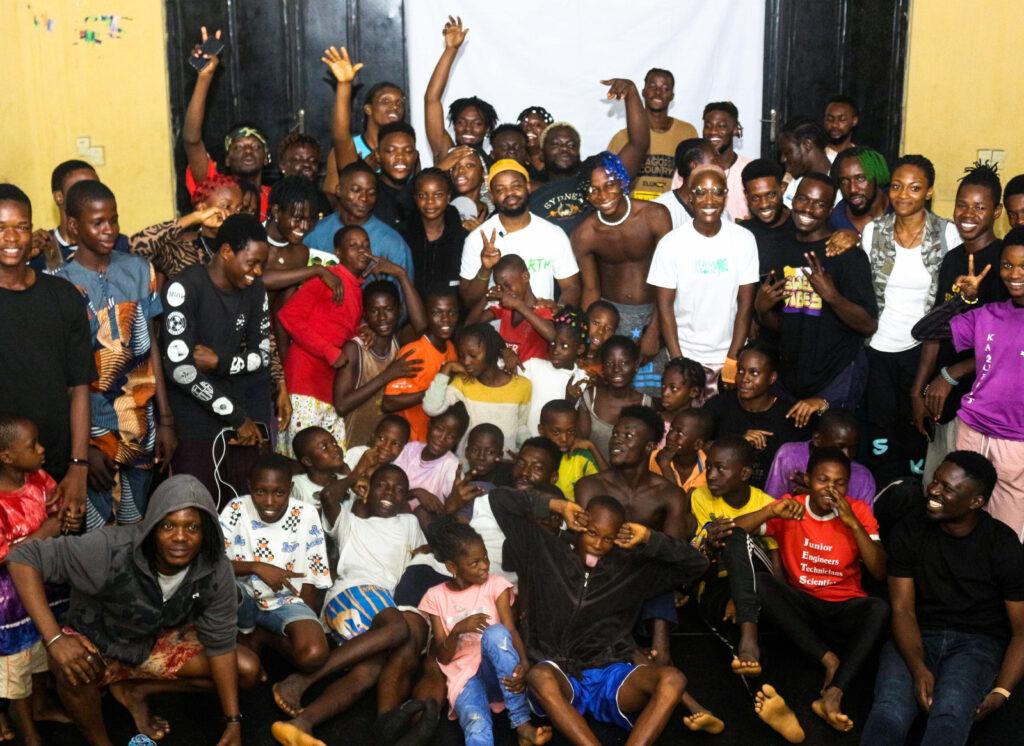
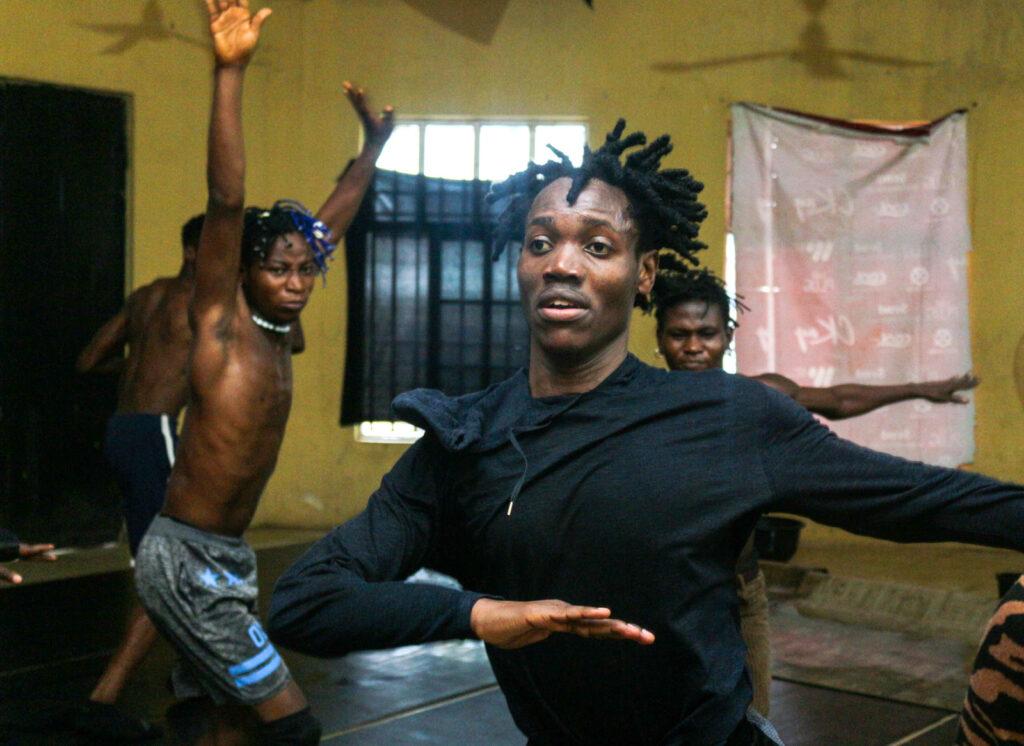
Slum Party this year will take place here along with other events and workshops like the aerobics classes for local women.
Once the school is expanded, we also want to provide a gym space with exercise equipment like weights so that people can train and spend time on their wellness.
How can people support the campaign?
Our fundraiser on GoFundMe is up and running and we really appreciate donations.
If people are able, we’re raising €3,000 for the next stages of construction, installing a generator and getting school supplies for day-to-day classes.
All financial support goes a long way.
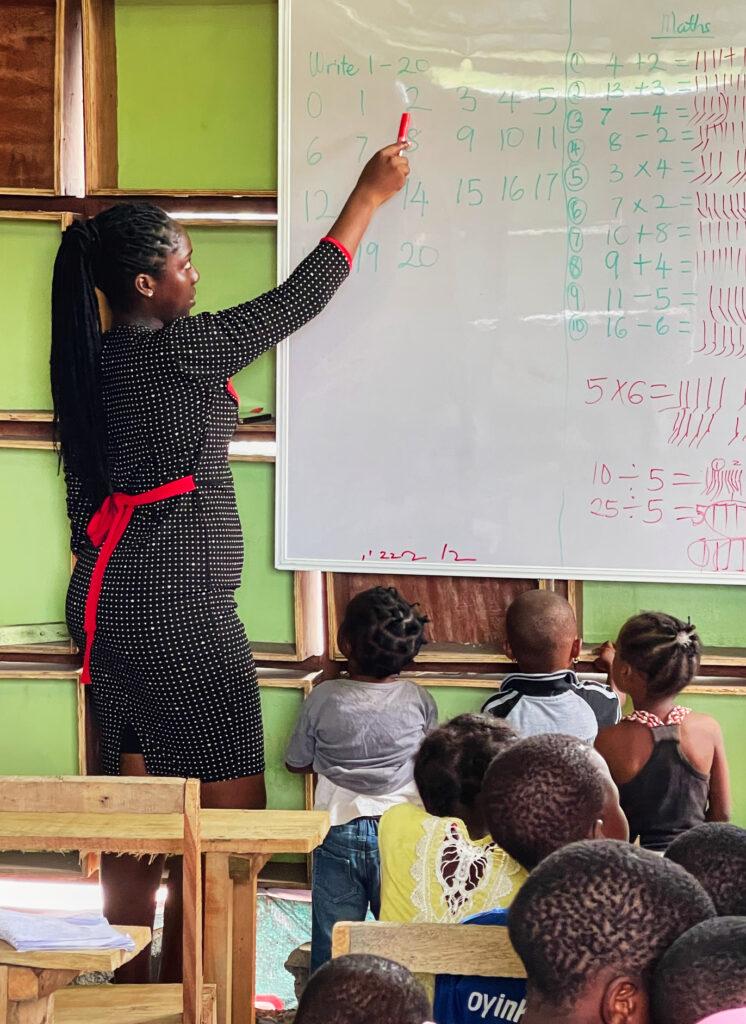

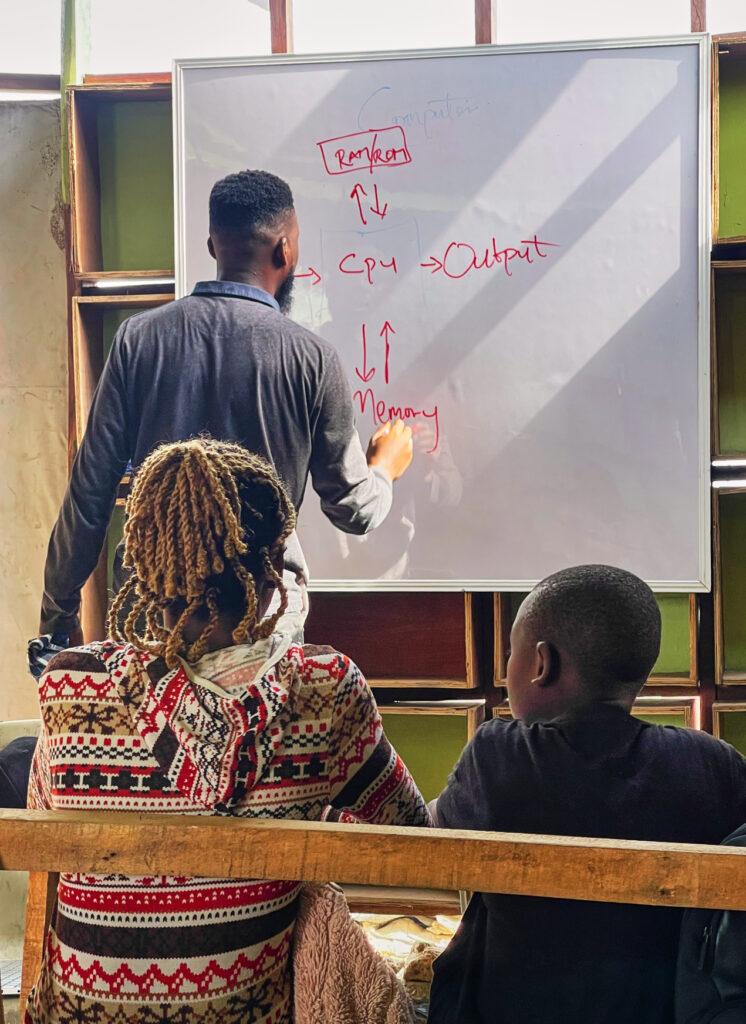
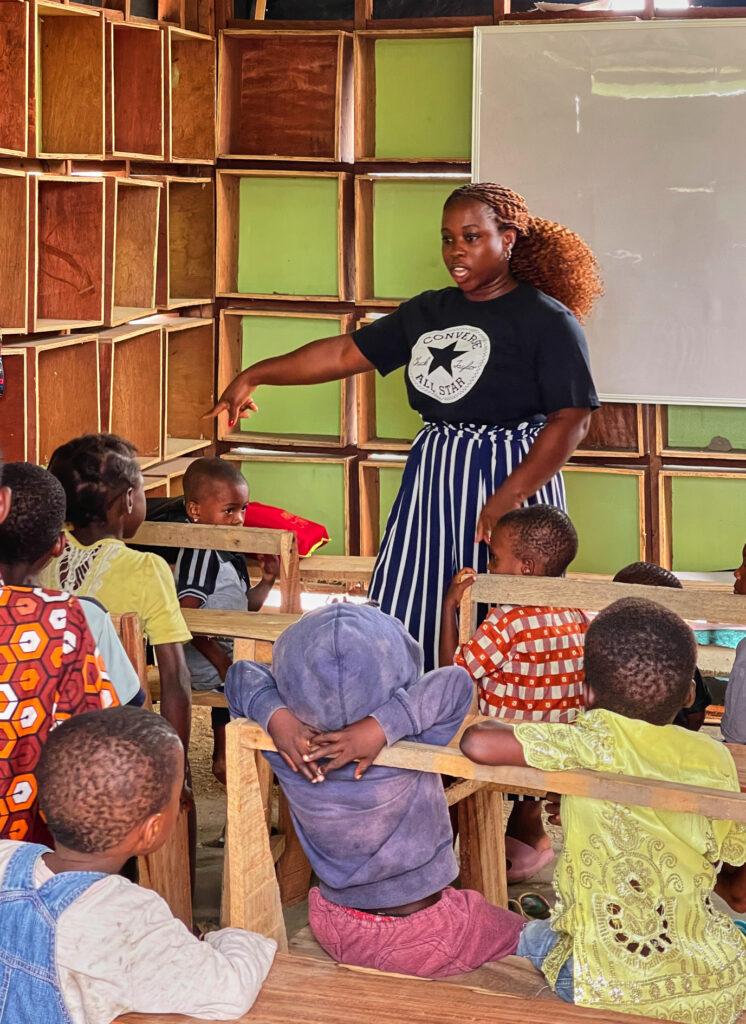
For anyone based in Lagos or Nigeria, we welcome physical donations of books, appliances, stationery… anything that can help.
You can DM @ennovated for details.
When we start sharing the story of the school, I think we can get more support from educational bodies too, that’ll also help us to grow.
I’m so inspired by how everyone involved is bringing their energy and capacity to make this happen so all support is appreciated.
This project is making a real impact to the children and families coming to this school set up by artists.
Donate directly to the free school fundraiser via GoFundMe
Read more about Slum Party on the blog
Follow Obiajulu Ozegbe: @obiajuluozegbe
Follow Ennovate Dance House: @ennovated
Follow Slum Party: @_slumparty


